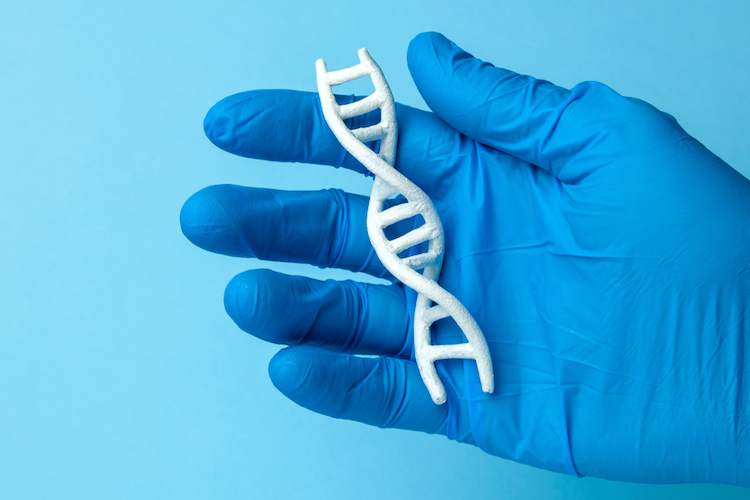Researchers studying a rare disease have identified a new gene responsible for human immune system regulation. An international collaboration combined information from both mouse models and a single human patient in an effort to find the underlying genetic cause of hemophagocytic syndrome. This discovery could potentially inspire a treatment for the deadly disease and provides new insights into the immune system.
By Amy LeBlanc
A perfect (cytokine) storm
An uncontrolled activation of the immune system is rare but deadly. Hemophagocytic syndrome is such a disease: rare, but life-threatening. It is characterized by severe hyperinflammation, caused by an uncontrolled proliferation of immune cells that secrete high amounts of inflammatory cytokines in what is known as a cytokine storm.
The disease most commonly affects children, with an estimated prevalence of 1 in 100.000 kids. It typically results in symptoms including a fever, enlargement of the liver and spleen and lymph nodes, yellow discoloration of the skin and eyes, and a rash. The severe immune dysregulation will, if untreated, eventually lead to tissue damage and death. Currently, the only curative treatment option is a hematopoietic stem cell transplantation.
The identification of this new mutation might help us to diagnose the disease earlier and start a more suitable treatment. – Dr. Patrick Verloo, UZ Gent
Hemophagocytic syndrome can be caused either by heritable genetic mutations or by specific types of infections. In the inherited form of hemophagocytic syndrome, the mutations prevent the natural brakes of the human immune system from working, causing the immune system to keep fighting even after an infection has been eliminated. An early recognition of these genetic mutations is crucial for any reasonable attempt to restore the normal functioning of the immune system.
A cross-continental collaboration
In a study recently published in Nature Communications, researchers revealed the role of a new mutation in the gene responsible for the protein Roquin-1. The mutation was discovered in a young Flemish boy suffering from recurring hyperinflammation, resembling hemophagocytic syndrome. The results from this unique case suggested that impaired Roquin-1 function provokes hyperinflammation by a failure to quench immune activation.
The identification of this new gene variant sparked an international collaboration to understand its role in the human immune system. Research teams at the Ghent University hospital, VIB-UGent Center for Inflammation Research, Helmholtz Zentrum München and the Australian National University combined information from both a mouse model and this single male patient to uncover new information about the condition.
This kind of translational research is of utmost importance. It is clear that only a profound understanding of the origins of these rare immune diseases will improve the diagnosis and care of these patients. – Prof. Filomeen Haerynck, UZ Gent
By comparing the results of the patient with those found in the mouse models, the researchers revealed both parallels and intriguing differences. These, in turn, helped to elucidate the development of hemophagocytic syndrome. What’s more, the mouse models allowed the researchers to test and validate alternative treatment options for this rare immune disease. Simon Tavernier, first author of the Nature paper, commented:
“The identification of a genetic defect in Roquin-1 by the genetic department of the Ghent university hospital was the start of a very challenging project. Only by teaming up with the research teams in VIB and experts on this particular gene in Germany and Australia, were we able to connect the dots, prove the role of this gene variant and provide insights how this resulted in disease.”
Dr. Patrick Verloo, the clinician taking care of the young patient at the University Hospital Gent, thinks this discovery will result in direct patient benefits:
“The identification of this new mutation might help us to diagnose the disease earlier and start a more suitable treatment.”
New knowledge of the human immune system
By identifying the role of Roquin-1 as a regulator of the human immune system, the researchers discovered a new mechanism how human immune disease can arise. Professor Heissmeyer (Helmholtz Zentrum, Germany) emphasized the importance of these findings:
“Our research will stimulate the scientific efforts to understand how Roquin-1 functions in the human immune system. It is likely that we will also find additional mutations in Roquin-1 in patients with other immune diseases such as autoimmunity.”
For more genetic discoveries, read this article on a mutation that makes children vulnerable to common diseases.
Prof. Filomeen Haerynck (Primary Immunodeficiency Research Lab, University Hospital Gent), last author on the article, also stressed the significance of the collaborative approach. She believes that combining the expertise of both clinicians and scientists, to reveal the genetic causes underpinning these rare immune diseases, is vital:
“This kind of translational research is of utmost importance. It is clear that only a profound understanding of the origins of these rare immune diseases will improve the diagnosis and care of these patients.”
This article was based on a VIB interview.


